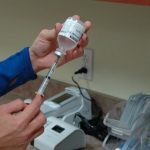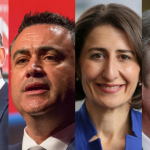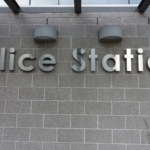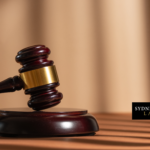When the Rivers Run Dry: An Interview With Bourke Water Activist Fleur Thompson
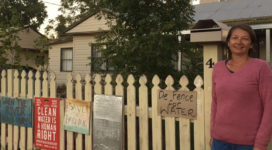
Scotdesco is a remote Aboriginal community on the edge of the Nullarbor Plain in South Australia that ran out of water last week. And despite the community having called on the state government back in April for help regarding their predicament, nothing has been done.
The Menindee Water Run posted a message on Tuesday, about the plight of this remote township. The grassroots organisation called on people to make donations so that boxes of water could be sent out to the community of just over 60 people.
Set up to deliver water into towns running dry along the Barwon-Darling river system in north western NSW, the Menindee Water Run began operating just after the mass fish kills occurred along a stretch of the Darling River last summer.
Towns such as Menindee, Bourke and Walgett began running out of water in early 2019, after years of drought. However, the lack of rain in the region is not the real culprit in this equation, as it’s been well documented that irrigators have been over pumping, both legally and illegally.
Prioritising industry
Last February, irrigators asserted that they weren’t to blame for the shortages. Barwon-Darling water users spokesperson Ian Cole said, “We’ve been blamed for the dead fish and the drought in the river but when you look at historical data you find the river runs dry quite often.”
While a Wentworth Group of Concerned Scientists report that had just been released in January condemned both the NSW and federal governments over their failure to adequately manage and monitor the water systems.
Co-author of the report ANU professor Jamie Pittock told the press at the time that the management plan for the Murray-Darling Basin favours the interests of northern irrigators, at the expense of the environment and river communities.
Indeed, just last week, ANU economics professor Quentin Grafton explained that a cotton farmer who was caught and prosecuted for illegally pumping water from the river system alleged that he had the nod from the NSW water ministry.
A get out of gaol free clause
Fleur Thompson is a concerned activist. She’s been vocal about the lack of water in the region being much more to do with a broken water management scheme that preferences irrigators, than it’s to do with any drought.
And the Bourke local questions why, when water trading restrictions were placed on scarce water supplies on 1 July, the testing of water metre equipment was still allowed. This loophole, perhaps, sounds like a good defence if one was found pumping water while the ban was in place.
Sydney Criminal Lawyers spoke to Fleur Thompson about how the towns in north west NSW are currently faring, what she posits are the true reasons behind the ongoing water crisis, and why it’s necessary for people to speak up and call for change.
Firstly, last March, we spoke to Lanz Priestley of Dignity Water. At the time, they were shipping water into towns along the Barwon-Darling that were running out due to the crisis. And I understand there was some much-welcomed rain last weekend.
Ms Thompson, you’re from Bourke – which is one of the towns that’s experienced water shortages – what’s the situation like out in north western NSW right now?
Right now, we are on level one water restrictions back from level four. We had over 90 millilitres of rain over the weekend and our weir pool is overflowing again. That’s where we get most of our drinking water from.
All that said, we still don’t have a reasonable filtration system. So, they often have to chemically treat our water quite severely to mitigate what particulates remain in it.
Our backup bores are over 300 parts per million of sodium chloride. WHO has it set at 20 or 40 parts per million, whereas Australia has said it is a taste thing, and not a health thing. Our limits are set at 180 parts. That’s our bore water.
The river water can be up around 900 parts per million. And when it hasn’t flowed for so long, the algae toxins build up in it. If we get a little flow like we have, the silt in it makes the algae blooms more prevalent, and E coli is a risk as well.
And how will you fare with the water that came down over the weekend?
It will probably get us through the summer. They’ve taken the restrictions off. So, we are back to two hours a day watering of lawns and yards. There’s unrestricted car washing. There’s still restricted pavement washing.
The water we’ve got will last, but being full of sediment, it’s not all that great. Our filtration system is over 60 years old.
What’s life like in a town like Bourke when the water does run dry? What sort of changes do locals have to make?
They have to buy water or install filters. Whilst we have a full river and it’s diluted of saline, it’s probably enough to have a bench top filter, which takes the bits and pieces out.
When you have a benchtop filter that takes particles out, it fills up and it doesn’t last. So, you end up with six weeks out of a filter cartridge, which ends up about $90. It’s the cheaper option.
My family was buying water, and there’s only three of us. It was over $60 a week.
Despite talk of drought, many assert that the water shortages being experienced out your way are not solely to do with a lack of rain, rather there are other reasons behind it. What do you put the water crisis down to?
Policy. There were changes made to the Barwon-Darling water sharing plan back in 2012, after public consultation had completed.
There were changes made, such as allowing pumping during low flow and medium flow. There was imminent flow pumping, so if there was a rain event and a predicted flow, the pumps could be turned on.
There was carry over licences. So, if a farmer does not use their full allocation, they can carry that over for three years. This has been allowed to happen whilst we have been in drought pretty much since 2016, which was the last big rain event.
They’ve been allowed to carry that water over. So, last year, over 200,000 hectares of irrigated cotton were grown in NSW alone.
So, they can continue to take water from the rivers while they’re running low?
Yes. They’re allowed to continue to take that. They’ve now had it cut off since 1 July. The allocations are now banked. They will be able to access those allocations at a later date, when the recharge has happened.
At the moment, the rules need to be changed or we are going to be back here again. And we will keep getting here.
So, whilst we’ve had this rain and it’s all lovely. People are starting to forget how serious things were getting. The rules haven’t changed, so we will be here again.
What about water theft?
Water theft is part of the arrogance that goes with the irrigation industry. They’re above the law. It doesn’t matter if they steal the water to them, because they’ve factored the fine into their business plan.
It’s more lucrative to steal the water and pay the fine, than it is to let it go.
Many in the city only became aware of how severe the water crisis out west was with the news of the mass fish kills along the Darling last summer.
But, you claim the developments that have led to this crisis began years ago. Can you explain how that is?
We’ve been seeing these rule changes and the arrogance of the irrigators for a long time. Although, there are people around here who still don’t see it.
They can’t possibly think that certain people around town could do those sorts of things to the collective community, but they do. And it’s documented that they do. There are investigations underway, because they’ve done that.
It’s not new. In 2012, those changes were made due to one of Bourke’s local identities, Ian Cole, having a direct contact with Katrina Hodgkinson.
It’s also thought that he was the person that Gavin Hanlon was giving the insider information to. All of that’s under the ICAC at the moment.
How much has all this got to do with the privatisation of water: a resource that many believe is still held in the commons?
The licences that were issued for the Bourke area have been traded upstream, so now they can be taken out before they enter our system.
There were limits on the height of the flow before the pumps could be started here. So, to deliver water to those pumps would mean that they would have to deliver a fair amount of surplus water for the environment and community.
Now, those licences have been traded upriver, and they don’t need that extra surplus water to provide those allocations.
So, allocated water rights that can’t be used in some areas can be sold to other areas where they can be?
Yes. You buy Murrumbidgee water and still pump from the Murray. You can buy water from the Namoi and pump from the Macquarie. You can trade your licences all over.
And are their stockpiles of water still being held out there?
I don’t think there are. People with private dams used what they had for their last crop. The public dams are down to 6 and 8 percent. They’re pumping the dead water out of them for communities.
I don’t think there is a stockpile of water. I don’t think Queensland is stockpiling water.
In NSW, the Barwon-Darling system is under full embargo at the moment, with the exception being for metre testing. And that seems like a cruel excuse, if someone is caught pumping, they can claim they were testing their metre.
In your understanding, Ms Thompson, what should the authorities be doing about this?
The authorities need to listen to every review. There’s about 12 now, including a Royal Commission in South Australia. They’ve made recommendations to fix the plans, reduce the take, and make the restrictions on the levels of the river for pumping higher.
And we’re going to have a lot of trouble coming up, because they’re legislating for floodplain harvesting and that mitigates the water before it gets to the system.
So, we’ll be having a lot more problems before it gets better if they won’t address the science and the studies that have been done so far.
And lastly, is there a need for citizens to become more vocal in calling for change?
Yes. People need to be vocal. I’ve started a group called On the Step 2020. And I aim to have a presence of people picnicking and barbequing on the steps of parliament on the first sitting day.
I’m sick of it. They just keep pummelling us.


